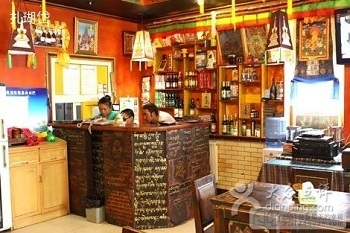句子:
The food in this restaurant is really out of this world and they don’t pad the bill like the restaurant down the street.

误译:
这家餐馆的食物简直没治了,而且他们不像街那头那家餐馆那样另外收费。
正译:
这家餐馆的饭菜确实别具一格,而且不像街那边那家餐馆老虚开账单,多收钱。
翻译加油站:
原文有两个习语。第一个是out of this world是美国俚语,其意思可以从字面意思推导出来:“不是属于这个世界的”,好像汉语说“此曲只应天上有”,也就是“不平常“、”与众不同“、”有特色”、“特别好”的意思。译作“没治”不是绝对不可以,但是“没治”也可能表示“非常糟”,还不如译为“好极了”,如:
Their performance was out of this world.他们的表演令人叫绝。
第二个习语是pad the bill。pad的原义是“铺垫"、"充填”,如“棉祆”是padded coat (填进去的东西叫fillings);而bill在这里是“账单”的意思(“我来埋单”是Let me foot/meet the bill;“结清账款”则说square a/the bill )。 pad the bill字面的意思是“让账单变厚”,但不是误译说的“另外收费”,而是做假账虚报账单, 即在账单中开列顾客没有消费的项目,故意提高收费余额,如:
The hotel charged us for ten trunk calls that we hadn’t made at all. I think they are trying to pad the bill.
旅馆要我们付10次长途电话费, 可是我们根本就没有打过,我看他们是虚列账单想多收钱。
The salesman padded his bill for his traveling expenses by exaggerating his food expenses.
那个推销员夸大伙食费用,虚报差旅费。
pad the bill也不同于overcharge后者指抬高价格的收费,而“另外收费”,如收小费、服务费、开瓶费等另外的费用,英语说 additional charge 或 extra charge。
还有一点,food有很多意思,如World Food Day是“世界粮食日”。这里译为“食品”不准确,餐馆里food译为“饭菜”更好一些。












